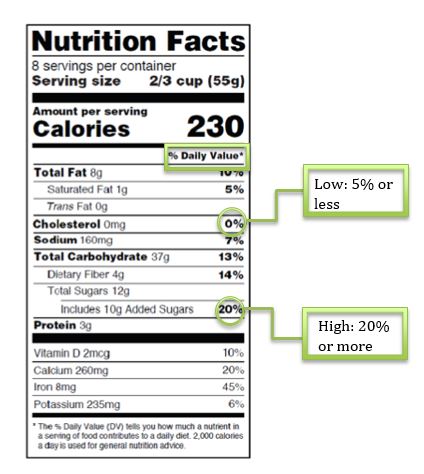Eat Right, Affordably
Aug 13, 2018

By Abbey Hillestad, Dietetic Intern
It is well known that eating a well-balanced diet is the best option to live an overall healthy life. Consuming a more healthful diet may reduce your risk of many diseases, some including heart disease, obesity, and type 2 diabetes. Great! We have solved the puzzle to living a healthy life! Although, many people find it difficult to purchase foods such as fruits, vegetables, and other whole foods because these options can be thought to be more expensive. Below are a few tips to eating healthy while keeping it affordable.
The first step to keeping healthy grocery shopping affordable is to plan and make a list before you hit the store. Many people end up wandering and finding items that they wouldn’t have originally purchased if they had prepared a grocery list, and many times these items are not the best option. This may take a bit more time in the beginning when you first begin to plan, but after awhile this will actually save you time in the grocery store because you know what you need and you will be on your way.
Many stores also sponsor coupons for the consumer to use. By utilizing this tool you can save about 10 to 15 percent on your grocery bill. On average, Americans spend about $550 per month on groceries so by using coupons when you shop, that would be an extra $80 per month saved!
Buying store brands and comparing unit prices is also a great way to save! Store brands are often 15 to 20 percent less expensive than nationally marketed brands and many match in nutrient quality. Unit prices are also a great tool to look at when purchasing, as many people see a lower price but are also getting a smaller amount of product; many stores show the unit price on a shelf tag.
Make sure to read the Nutrition Facts Labels and compare nutrients using the % Daily Value. Try to consume foods that are low in sodium and saturated fat, low being less than five percent. Also, consume foods high in fiber, vitamins, and minerals (calcium, iron, potassium etc.), high being more than twenty percent. Try and avoid highly processed foods and snacks; while these foods may be inexpensive, they often lack nutrients, which causes you to become hungry more quickly. Purchasing whole foods will keep you full for a longer time period. Another tip that people often forget is to swap out sugary beverages for water. Water is important to keep you hydrated throughout the day as well as help with hunger, and the best part is that it is completely FREE!
Need more tips on how to make healthy affordable? Check out this article from EatRight!






















